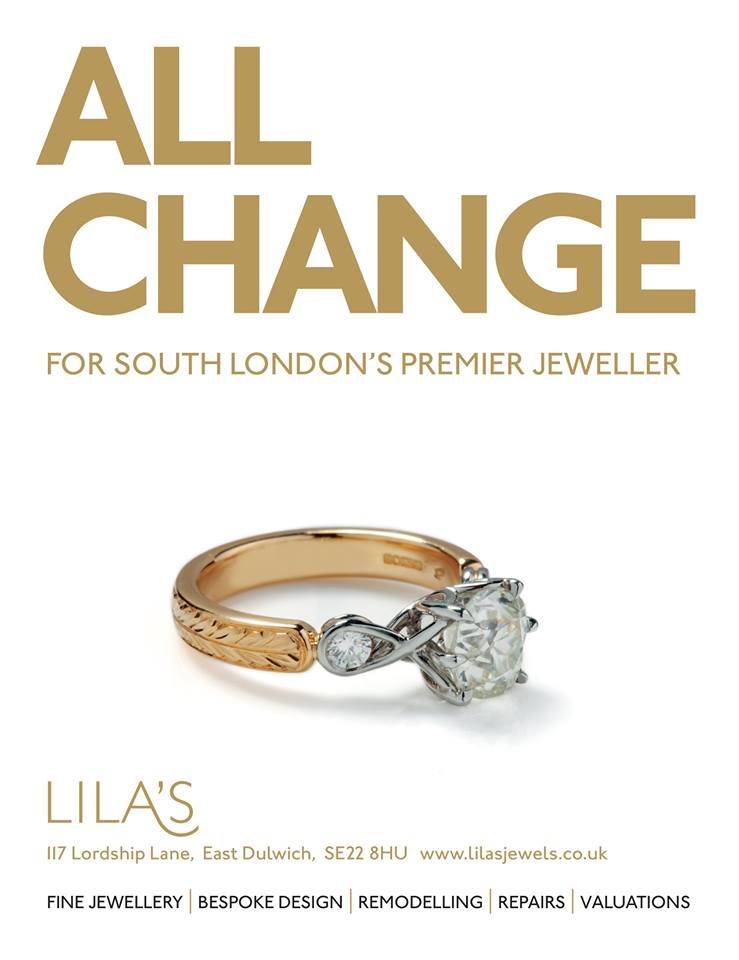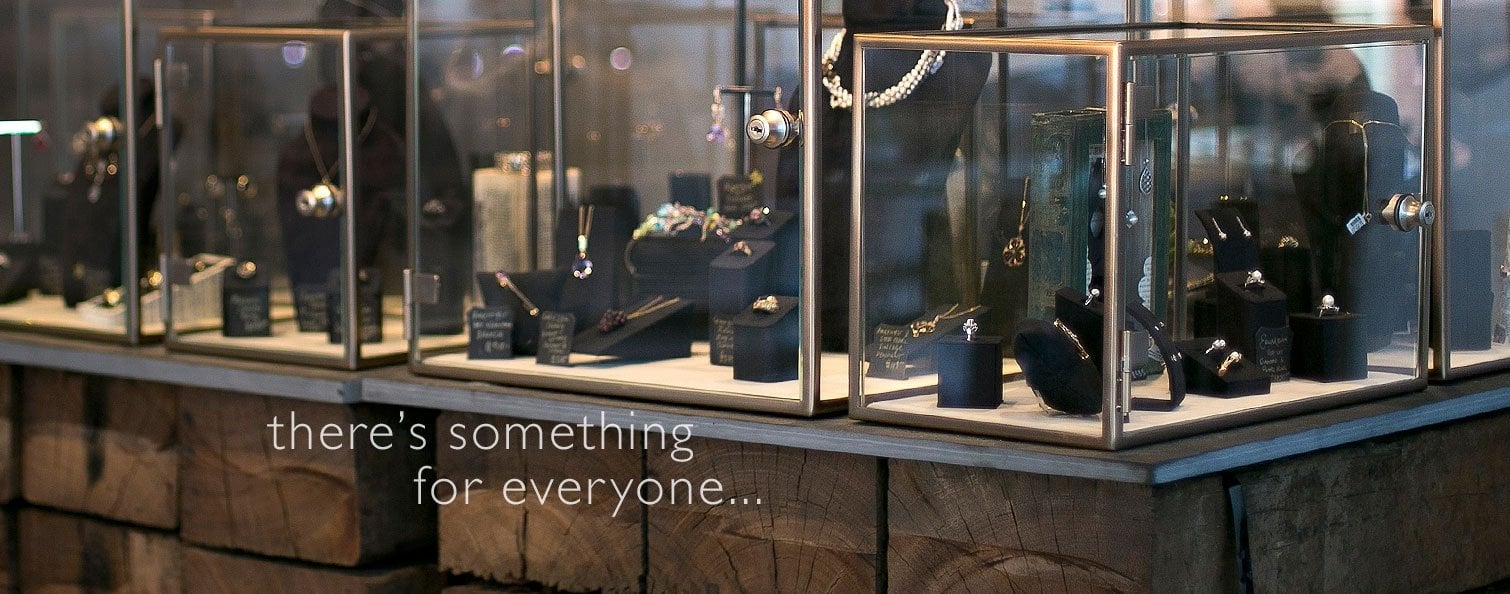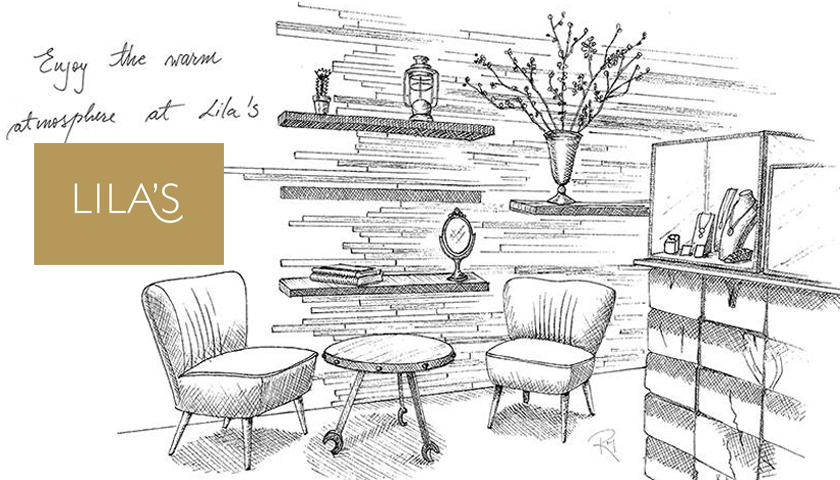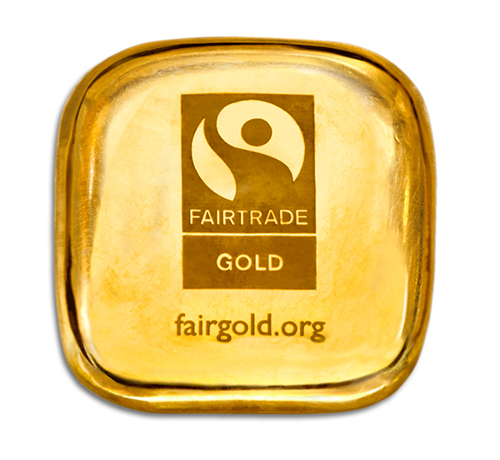One of my aims with this site has been to talk to people about the importance of ethical marketing within their own business as a way to inspire others who might read this, with this in mind I was thrilled to interview Cata Rosca from ethical jewellers LILA’s Jewels about her business, ethics and ethical marketing.
For those people who have not heard of you could you explain a bit about yourself and your background?
 I’m an idealist disillusioned by a career in journalism and steering towards the fascinating world of jewellery. I joined my husband’s business in Romania in 2007, mainly to help with certain admin chores and got more and more drawn towards gems and jewels. I love learning and as there are so many facets to this industry, I started exploring; from managing jewellery shops, analysing trends and buying to taking gemmology classes with GIA, studying jewellery history at the V&A, then manufacturing and valuing. We moved to the UK in 2012 and in February 2014 we opened Lila’s.
I’m an idealist disillusioned by a career in journalism and steering towards the fascinating world of jewellery. I joined my husband’s business in Romania in 2007, mainly to help with certain admin chores and got more and more drawn towards gems and jewels. I love learning and as there are so many facets to this industry, I started exploring; from managing jewellery shops, analysing trends and buying to taking gemmology classes with GIA, studying jewellery history at the V&A, then manufacturing and valuing. We moved to the UK in 2012 and in February 2014 we opened Lila’s.
Could you tell us about Lila’s?
Lila’s, named after my youngest daughter, represents the essence of what I’ve discovered over the years, which is honouring the past and reinventing old jewellery to fit with the lifestyle of the contemporary woman, as well as serving customers with responsibility. It is not only a beautiful, inspiring environment, which was highly commended by the Retail Jewellery Awards, but it speaks about recycling and the journey of gemstones. Lila’s covers all the services and products a traditional local jeweller would, but we step a bit further using modern technology and keeping a close eye on our ethical practices. Our staff is all highly experienced and like-minded and we all know that we become a part of the special moments in our customers’ lives, so we give it our best to make it a memorable experience. It’s so refreshing to see brides-to-becoming in to say “Hello!” and thank us for helping their partner find the right ring.
Your company has ethics at its base, can you tell me why that is important to you?
I naturally think of myself as a tiny pixel that is part of the bigger picture and we must all fit in and do our part to make sure the image is not fuzzy, but crisp and bright. And that’s in all aspects of life.
 My gemmology studies introduced me to the world of mining, the challenges and the risks involved, so once I became aware of what some people have to endure to put a sparkly stone on somebody else’s finger, I couldn’t just turn a blind eye. The UK is by far the biggest consumer of fine jewellery across Europe, hence it’s got a huge responsibility to lower the negative impact of the trade, and therefore I’m glad to see it is at the forefront of ethical practices. The emergence of the Fairtrade gold movement and of the Responsible Jewellery Council, along with a handful of people in the trade (Fair Lux) who are extremely committed to make significant changes in the industry is a huge step forward, but we still have a long way to go. I feel deeply about my role in making these positive changes happen, which is why at Lila’s we prioritise recycling and salvaging as much as we can to relieve the stress on mining communities. Last year we took a pledge to focus solely on Fairtrade gold for all our new production, like wedding bands, engagement ring or other bespoke projects. This way we know we’re directly supporting an artisanal small mining community, making a difference for them and in turn we’re proud to let our customers know they’re making an ethical choice as well. In terms of gemstones, as well, the top of the list are recycled ones. We salvage stones, particularly diamonds, from old damaged jewellery ourselves, so there’s a big chance we already have what the customer is looking for. If we don’t have it, then we turn to our reputable suppliers for recycled diamonds or new diamonds from Canada, having the Canada Mark, and being able to track them back to the source.
My gemmology studies introduced me to the world of mining, the challenges and the risks involved, so once I became aware of what some people have to endure to put a sparkly stone on somebody else’s finger, I couldn’t just turn a blind eye. The UK is by far the biggest consumer of fine jewellery across Europe, hence it’s got a huge responsibility to lower the negative impact of the trade, and therefore I’m glad to see it is at the forefront of ethical practices. The emergence of the Fairtrade gold movement and of the Responsible Jewellery Council, along with a handful of people in the trade (Fair Lux) who are extremely committed to make significant changes in the industry is a huge step forward, but we still have a long way to go. I feel deeply about my role in making these positive changes happen, which is why at Lila’s we prioritise recycling and salvaging as much as we can to relieve the stress on mining communities. Last year we took a pledge to focus solely on Fairtrade gold for all our new production, like wedding bands, engagement ring or other bespoke projects. This way we know we’re directly supporting an artisanal small mining community, making a difference for them and in turn we’re proud to let our customers know they’re making an ethical choice as well. In terms of gemstones, as well, the top of the list are recycled ones. We salvage stones, particularly diamonds, from old damaged jewellery ourselves, so there’s a big chance we already have what the customer is looking for. If we don’t have it, then we turn to our reputable suppliers for recycled diamonds or new diamonds from Canada, having the Canada Mark, and being able to track them back to the source.
What improvements do you feel could be made industry wide to make the industry more ethical?
First of all we need greater awareness of what is truly going on in this industry. If the majority of the trade acknowledges that we have a responsibility that goes beyond the limits of the business then we should see some more consistent and impactful changes.
We need more transparency in the chain of supply and a general agreement on best practices and implementation. It all sounds great when you present the idea, but the key is in small details and logistics, like assigning a code to each significant gemstone or gram of gold that leaves the original source and reaches a shop on the other side of the planet.
 The focus, so far, has been on consumers and small businesses taking the responsibility of asking the big questions. Where is the material coming from? Do they have health and safety regulations in place? Are children working in mining? Is there a negative impact on the environment? Is terrorism or dictatorship supported by the mining activity of our source? There are a lot of heavy things to research and sometimes the information is not readily available. Thinking in black and white and completely disengaging from trade with an entire area, is also counterproductive because, in some cases, you take away the only means of survival for some categories of people, or you simply sustain smuggling.
The focus, so far, has been on consumers and small businesses taking the responsibility of asking the big questions. Where is the material coming from? Do they have health and safety regulations in place? Are children working in mining? Is there a negative impact on the environment? Is terrorism or dictatorship supported by the mining activity of our source? There are a lot of heavy things to research and sometimes the information is not readily available. Thinking in black and white and completely disengaging from trade with an entire area, is also counterproductive because, in some cases, you take away the only means of survival for some categories of people, or you simply sustain smuggling.
I believe the next step should be in facilitating access to information and creating a registrar of responsible sources and a black list of sources that require dramatic changes. The Edinburgh Assay Office is about to launch such a database, which would be a tremendous help to the industry and public. We also need to put more pressure on the big companies to enhance their ethical practices. They can make a serious impact on the livelihood of people and of on the environment, so pushing them to make commitments would be another key direction.
How important do you feel ethical marketing is?
I think there’s a shift happening at the moment, with more and more businesses advertising their Corporate Social Responsibility projects,as studies reveal that the new generations of consumers favour the companies that give back to the communities. It is very important to let people know what your values are as a business, how transparent you areand if they themselves can have a positive impact by buying your products or services. If the consumers are set to make ethical choices, then we have to find the right means to present those choices to the consumer. You can’t get an ethical engagement ring if don’t know there is such a thing.
What do you do to try and reach out to a more ethically minded audience?
We’ve had ads in magazines informing about our ethical wedding bands and engagement rings and we try to increase our online presence, becoming more visible for people who consciously look for ethical jewellery. We’ve also recently contracted a PR agency, FACETS PR, to help us spread the word about Lila’s and our values.
If you could see one ethical change in marketing/advertising as a business that could help a business like yours, what would it be?
One change that I would like to see is a cap or some sort of restrictionon the amount of paper advertising in the form of randomly dropped leaflets. There is an incredible amount of waste, something we specifically steered away from. I also believe the government can step in with national campaigns to educate the general public on the importance of shopping locally and ethical sourcing.
Has there been any company or person who has influenced and inspired you?
There are quite a few influential people out there focusing on driving change. I admire how Elon Musk is changing the auto industry forcing a shift from fossil fuels to electricity, how he made Tesla’s patents open source and refused to advertise, instead redirecting advertising budgets towards delivering a good product that speaks for itself.
There’s Greg Valerio who initiated the Fairtrade gold movement, who is a constant source of inspiration, Bill Gates who fights against malaria and other diseases in developing countries, Reese Witherspoon who’s made her own production company focusing on strong women characters in mainstream media.
Do you have a favourite piece of jewellery you could talk about with us from Lila’s?
Oh, there are so many I couldn’t stop talking about. One of my pleasures is researching the history of a certain piece, so those that have a story beyond an appealing design are particularly special to me. I often try to imagine who wore the piece, to what events and what it was like back then. There was a particular ring we had some time ago and I regretted seeing it go. It was a small oval signet ring with a forget-me-not flower engraved on the top panel and a hallmark from London, 1914. I bought it at a flea market and it immediately made an impression because I couldn’t stop thinking of the circumstances in which the ring was gifted. It was a small size, small top ring, most likely for a woman to have a keepsake from her other half, while he was fighting in the war; a petite ring carrying a heavy message of love and hope.
What’s next for Lila’s?
This year we’re focusing on diversifying our own Fairtrade gold collection and increasing our presence in the media, so that people know there’s an amazing company called Lila’s and they reach out for us. After successfully shifting our new production towards Fairtrade gold and donating part of our income to the women’s mining community in Busia, Uganda we will now concentrate on coloured gemstone sources and increasing our bespoke projects.
Have there been any ethical campaigns by others you’ve particularly enjoyed?
Hmm. I think there are quite a few big companies right now with important campaigns. One that I enjoyed is that from THINX, an American company producing period-proof undies. Not only they have researched and provided an alternative to disposable tampons or towels, but they are also contributing part of their gains to donate the miracle undies to girls in developing countries, to allow them to continue on with their lives during periods. It’s hard to think some girls can’t go to school during their menstrual flow, because they can’t afford the necessary protection, but this is reality. THINX also aims to break period taboos and bring women’s issues in focus.
Can you put on your marketing hat and sell Lila’s to those looking for something else?
Lila’s is a rare find in today’s jewellery market. We’ve curated a great collection of vintage, antique and pre-loved modern pieces and you’re welcome to pop by literally any day of the week and try them on. We believe jewellery is very personal and it should be fun; you have to enjoy the experience of buying and wearing it. We offer a guarantee for all the pieces we sell and free clean up within first year of purchase. We cover a huge range of jewellery repairs and valuations, and should you want to remodel an older piece you have or design your dream from scratch, we’re all prepared to make it happen. We also offer a fully bespoke service, focusing on Fairtrade gold and ethically sourced stones.

Links
Thank you so much to Cata for this great interview, all opinions and comments are those solely of Cata Rosca, and all images and photo’s used in this article are (c) LILA’s Jewels, please check them out.

